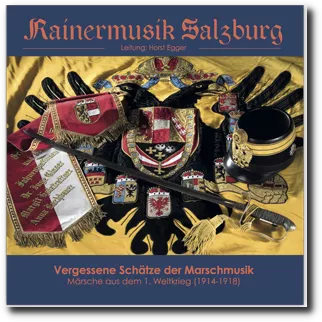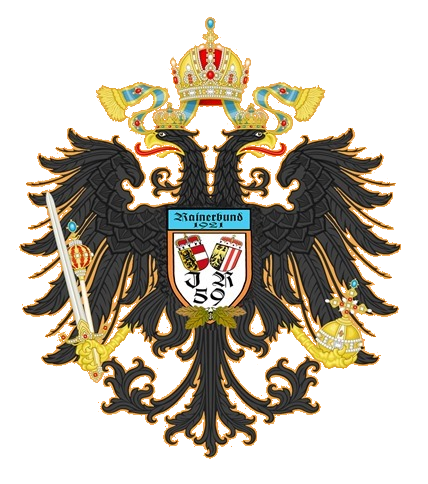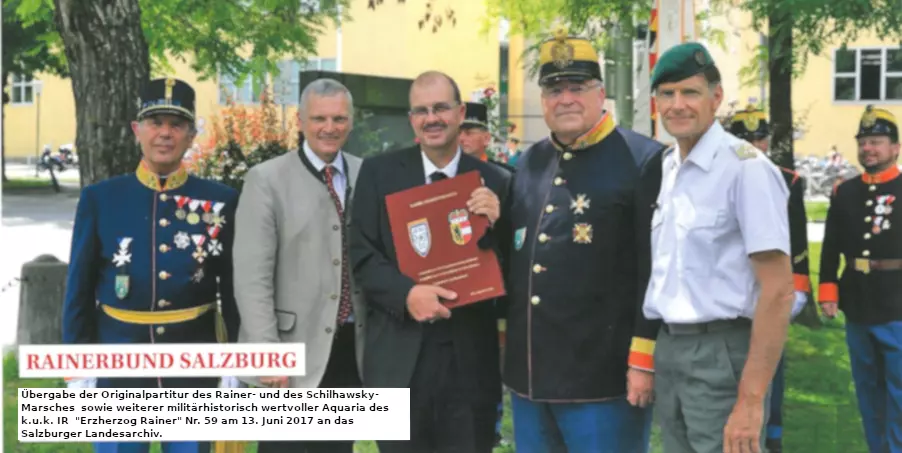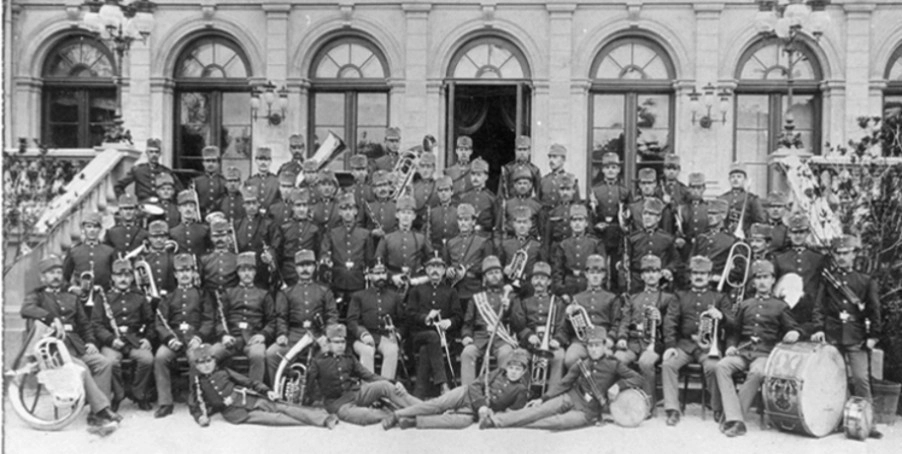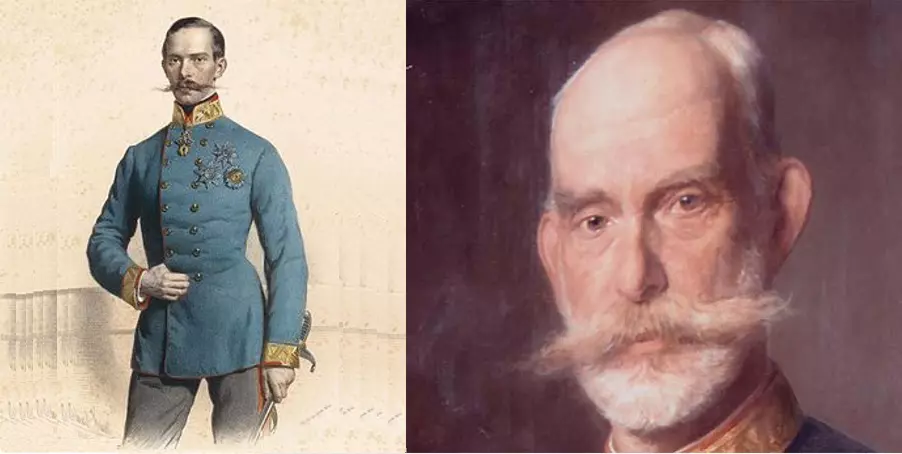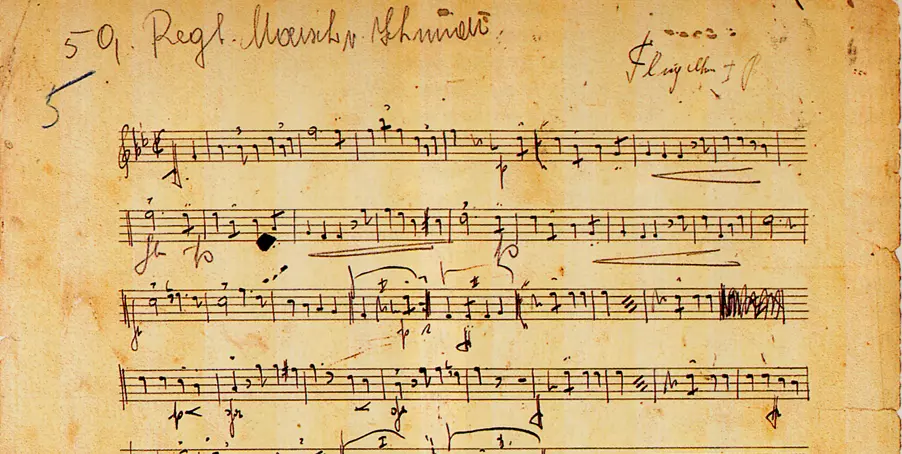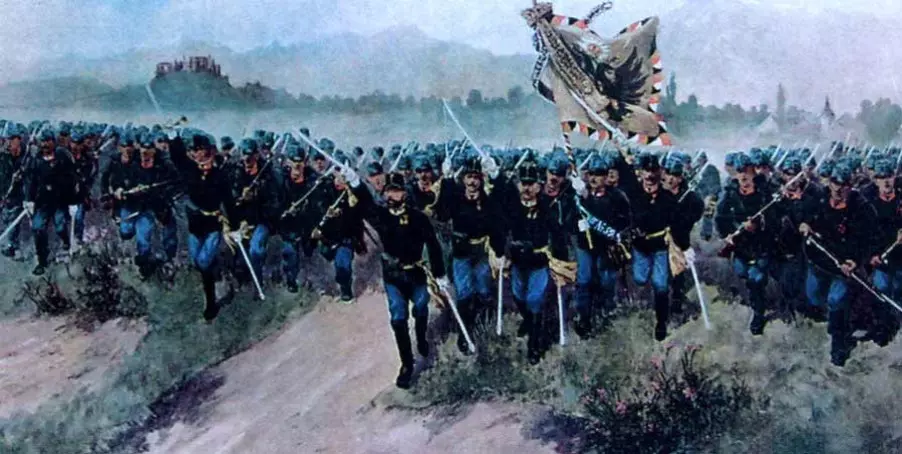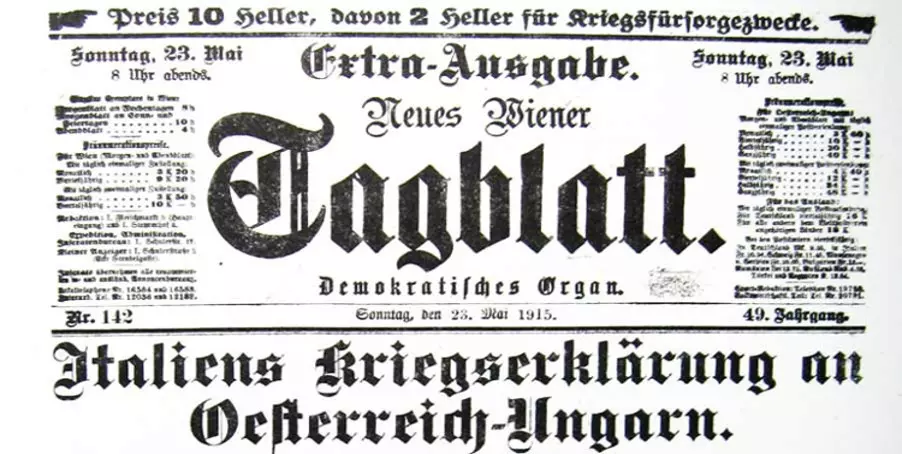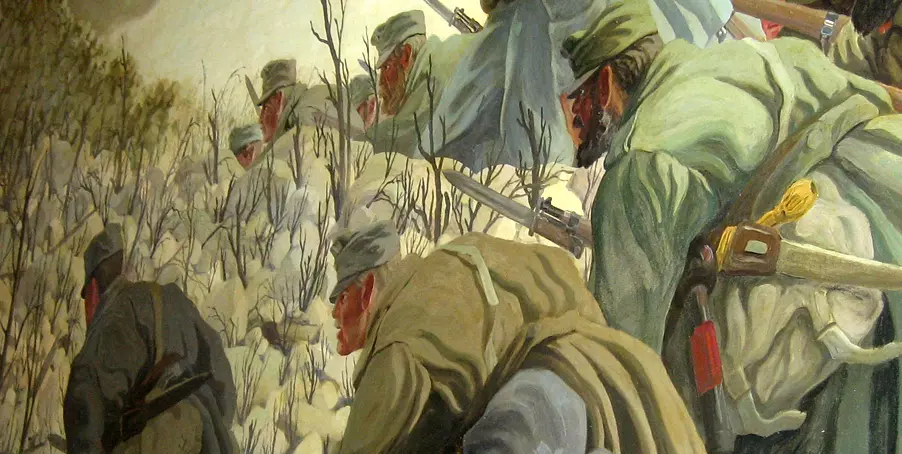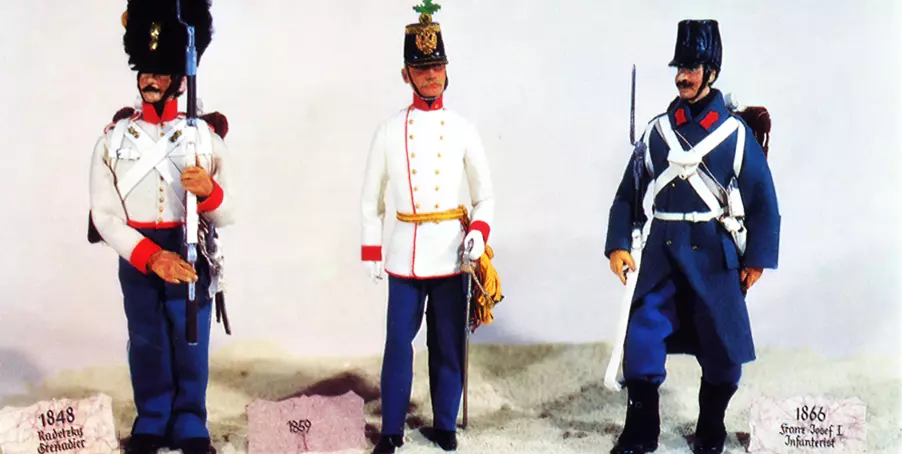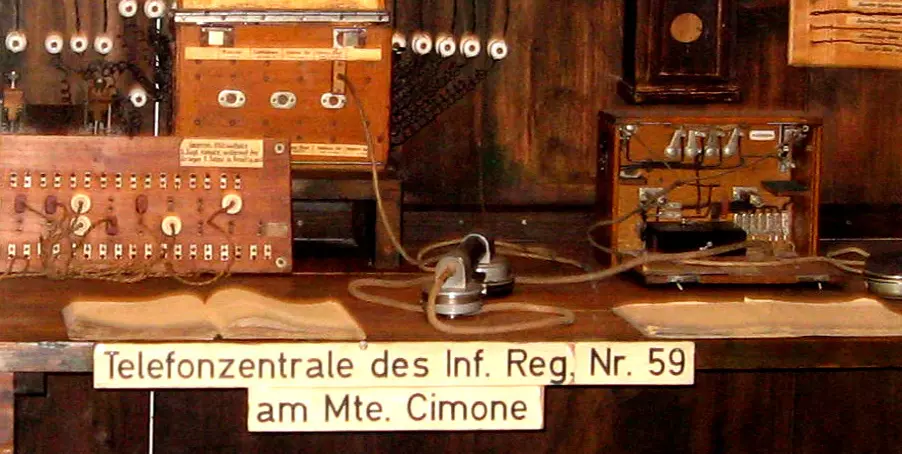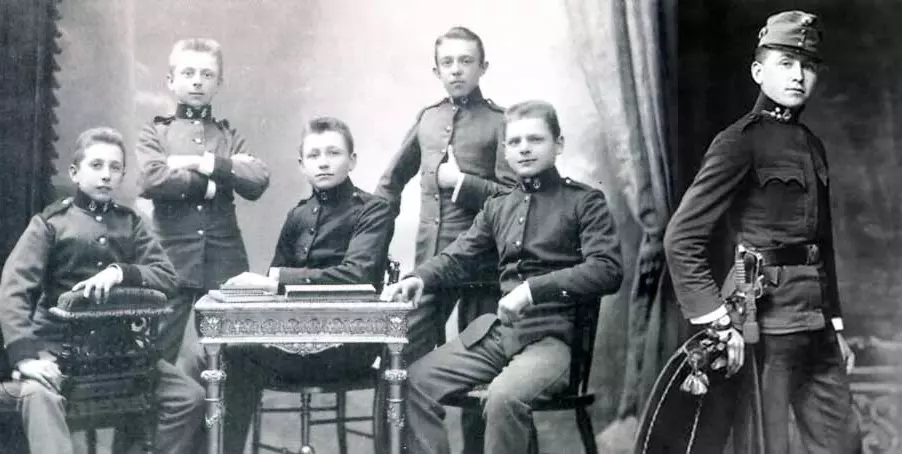History of the regimental Rainer March
(composed in 1915)
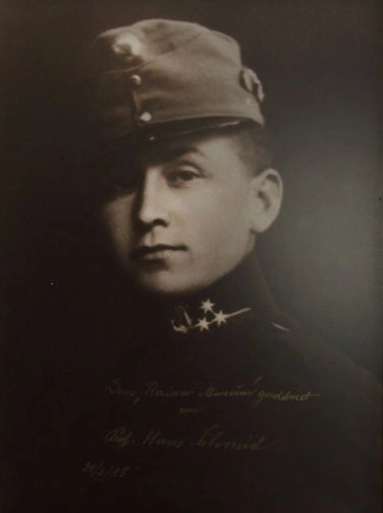
Prof. Hans Schmid (1893 - 1987), composer
Born in Znojmo, Southern Moravia on November 20th, 1893
Died in Salt Lake City, USA, on Mai 28th, 1987
Buried in a grave of honour in the Kommunalfriedhof Cemetery in Salzburg
Hans Schmid later recounted the origin of the Rainer Regiment March:
“I had already made the decision to compose a march for my own regiment in the first days of the war, in Rudno (Galicia). At this time, the "Deutschmeister" (Austro-Hungarian Infantry Regiment No. 4) already had its own regimental march, so why shouldn’t the 59ers also have their own “Rainer March”, I thought.
Said and done. I completed several drafts and selected the best melody thereof, and used the regimental signal in the introduction. In the second part of the trio (fortissimo), I incorporated trumpets into the general march. A fellow musician, Corporal Josef Schopper, wrote the original text to this composition at my request at that time. Soon afterwards, there were several different texts.
I orchestrated the march in autumn of 1915. It was – I remember it exactly – near Chorlupy inside a heavily shelled Orthodox chapel, in which I forced myself to work on this on a narrow church pew. Outside it was pouring rain. I was writing the notes for the various instruments with a pencil on music paper, two things I always managed to carry with me throughout the entire war. After the work was finished I returned at nightfall to my quarters, a self-made foxhole I shared with two comrades. I fell asleep with a thousand thoughts on whether or not the march would be met with approval.
The regiment's drum major, Josef Dobes, practiced it the next day, and it was received with enthusiasm by all the musicians. During the practice, an enemy plane attacked and dropped some bombs nearby, but nothing happened. At that time, the regimental band was assigned to the Third Division Command (Edelweiss Division).
The Austrians were then advancing towards the East and reached the city Olyka. The band was quartered in the theater hall of the palace where the XIV Corps Command and other commands were located. There in Olyka, I was assigned to lead the regimental band. We were required to play an outdoor concert daily.
For the very first concert, the band, which was led by a new conductor – I was 22 years old at the time with the rank of sergeant – played the “Rainer March”. Corps Commander Field Marshall Lieutenant General Roth-Limanova and other generals were present. A powerful soldier choir sang in the trio, and the acoustic effects in the beautiful courtyard of the Olyka Palace were wonderful. The new march was met with high praise by the officers and soldiers, and needed to be repeated. From this point on, the "new Rainer March” was triumphant".
These days the original score is preserved at the archives of the province of Salzburg.
Source: "Hans Schmid 1893 - 1987 - Ein Komponistenleben" by Karl Mueller and co-author Johann Mueller
Text (German) & Music:
Hoch Regiment der Rainer, als tapfer allbekannt,
wir schützen unsre Heimat und unser Vaterland.
Wir siegen oder sterben für unser Heimatland,
die Feinde wir verderben, hoch Salzburg, unser Land!
Hoch Regiment der Rainer, wir stehen fest zur Wehr,
wir stürmen und wir schlagen mit Kolben und Gewehr.
Die Feinde müssen weichen, sie kennen unsre Hand,
kein Regiment desgleichen, hoch Salzburg, unser Land!
Vom Inn bis zu den Tauern reicht unser Heimatland,
kein Feind soll es erschauen mit Waffen in der Hand.
Kein Feind kann uns bedrohen so lang's noch Rainer gibt,
denn Mut im Kampfeslohen zeigt, wer die Heimat liebt!
Der Weltkrieg hat gefordert viel tapfres Rainerblut,
mit rauher Hand zertrümmert so manches Hab und Gut.
Am Feld der Ehre blieben, getreu bis an das End,
fünftausend Kameraden vom Rainer-Regiment!
Original text : Corp. Josef Schopper
Music: Prof. Hans Schmid

Rainermarsch - Band of the Military Command of Salzburg
